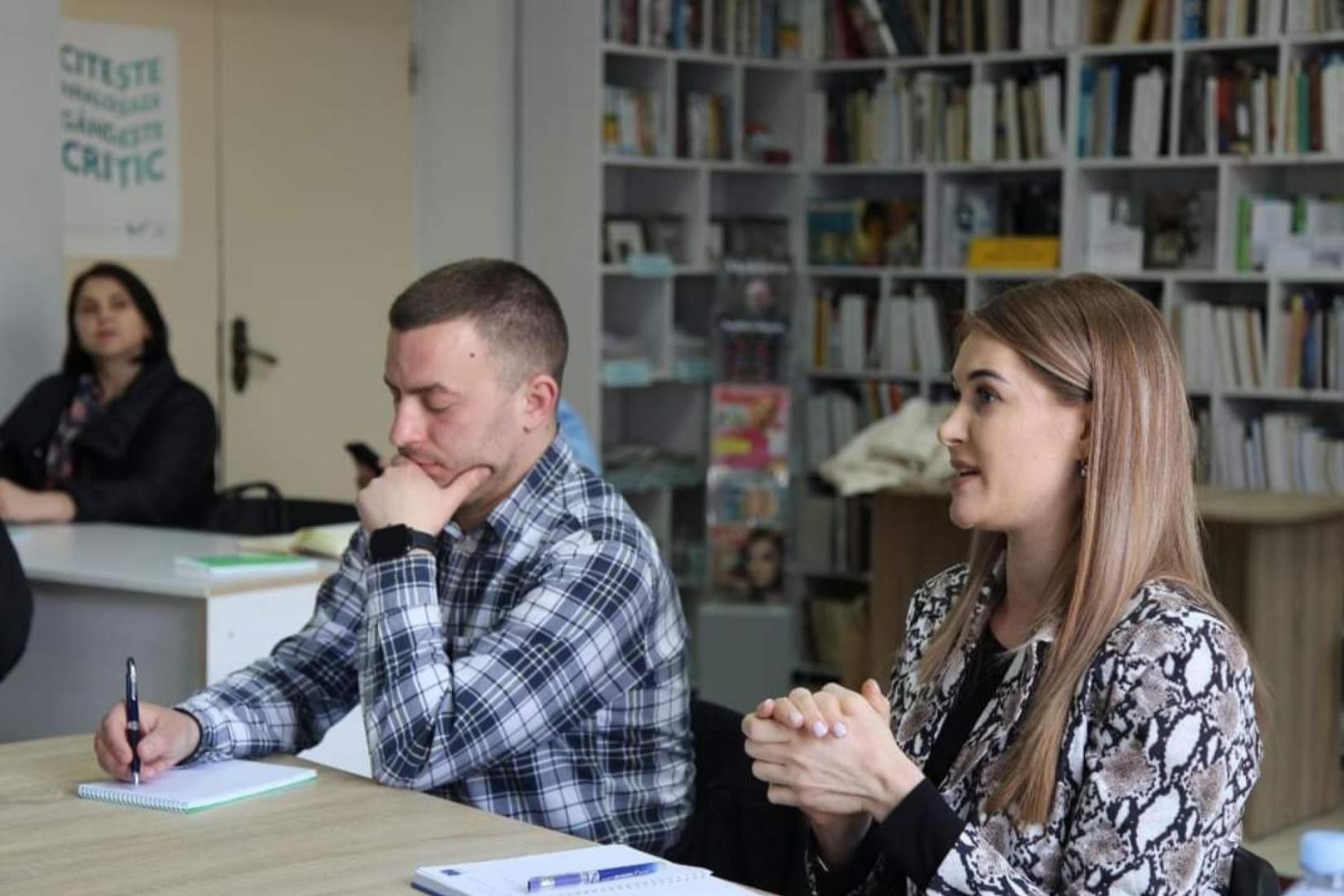Media and public institutions in Moldova are more resilient to disinformation
11 September 2023
- UNICEF, in partnership with API, developed and organized a program training for journalists, communication specialists to prevent and combat disinformation.

Disinformation costs lives. It is one of the lessons learned during the COVID-19 pandemic. Many people have fallen victim to false information, creating a perpetual cycle of falsehoods that affect society's physical and mental health. To counter this, journalists and communication specialists have adapted and developed new strategies to debunk myths and fight disinformation.
UNICEF has been working with the authorities in the Republic of Moldova to uphold the rights of children and youths, especially during crises. Since the onset of the pandemic, UNICEF Moldova established a partnership with the Association of Independent Press (API) to equip journalists and public communicators with the necessary skills to combat disinformation related to COVID-19 and immunization. Thanks to the generous support from the United States Agency for International Development (USAID), more than 73 journalists from 27 regional and national media organizations participated in four workshops in 2022. These workshops, held in Chisinau, Comrat, Cahul, and Soroca, focused on identifying, analyzing, and debunking fake news. Likewise, more than 120 students from four universities in Moldova learned about the importance of developing critical analysis abilities and identifying false information.
Furthermore, from March to July 2023, 290 communicators and public sector specialists from 25 districts throughout the country participated in the training to enhance community communication and counter misinformation. The training modules covered various topics, from identifying credible sources to practical communication tools.
"The crises we've navigated through have revealed that a segment of the population is vulnerable to disinformation," says Viorica Zaharia, a journalist, media expert, and President of the Press Council. "Communicators from public institutions can have a significant impact. They can swiftly intervene to debunk myths, issue alerts to the community, and even launch small-scale information campaigns to combat and prevent disinformation."
"Effective communication is essential for any state institution as it creates a vital link between citizens and the governmental structures responsible for implementing public policies and services. The information shared must be clear, accessible, professionally presented, and above all, accurate," says Natalia Porubin, journalist, communicator, and member of the Moldovan Press Council.
According to those who participated in the training, the fight against disinformation is a complex challenge, especially in regions where the community needs more preparation to distinguish between authentic and manipulated information. "Specialists responsible for institutional communication must prioritize the quality and the sources of the information they release. Ongoing training is crucial for these specialists," says Lia Banari, Head of Protocol and Public Relations Service at the Ștefan Vodă District Council.
"Institutions need to do more than just report on their activities. They should cultivate strong relationships with the media and correct any false information circulating in the public area, thus allowing citizens to remain accurately informed," says Lilia Malencova, a media relations specialist with the General Directorate of Culture UTAG (Gagauzia).
In partnership with API, UNICEF has developed an online training platform, Elearning.api.md, specifically designed for journalists, students, and communicators. The course 'Public Communication in Crisis Situations and to Combat Disinformation' is available on this platform in Romanian and Russian languages. Moreover, within this partnership, an interactive digital tool called the 'ABC of Disinformation' has been developed to help all the consumers of information products to document and verify statements in the public space. In alphabetical order, ABC presents some words, terms and expressions mainly related to misinformation about COVID-19 and vaccination. It also gives debunking falsehoods and necessary explanations, including references to credible sources and information verification platforms.
In June 2023, with USAID support, UNICEF and API organized a discussion panel titled 'Data Diligence: Validating the Truth'. This event brought together numerous journalists, communication specialists from across the country, and public health experts, providing a unique opportunity to discuss challenges and strategies for combating the dissemination of fake news within society.
The UNICEF project 'Empowering Journalists from Regional Media and Journalism Students and Increasing the Informational Resilience of the Public' was implemented by the Independent Press Association (API) with the generous support of the American people through the United States Agency for International Development (USAID).


